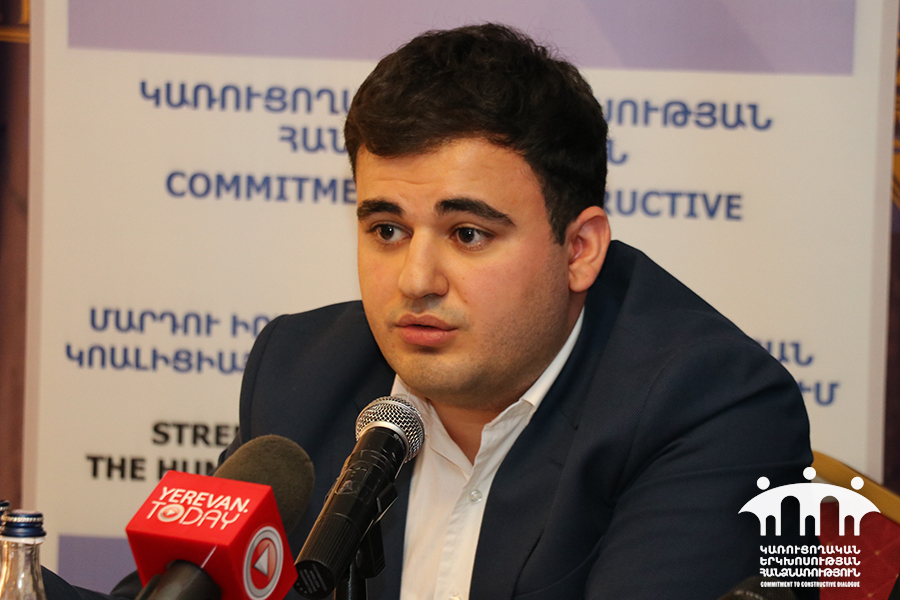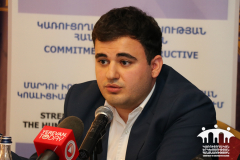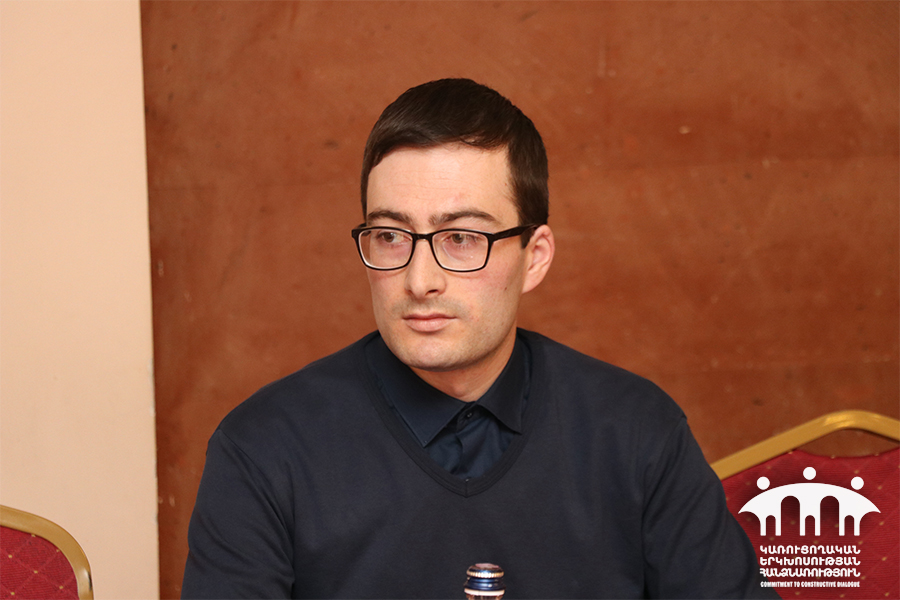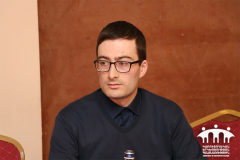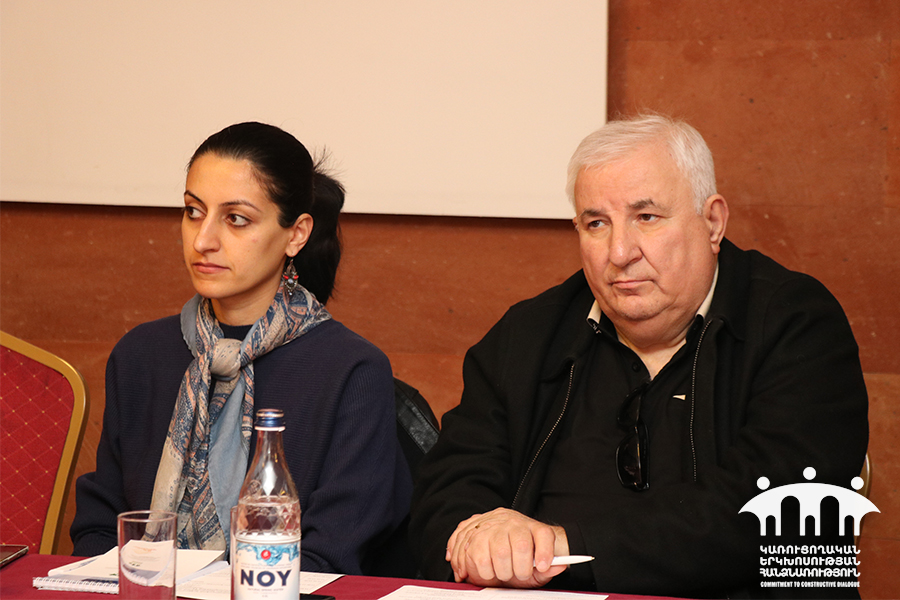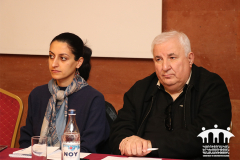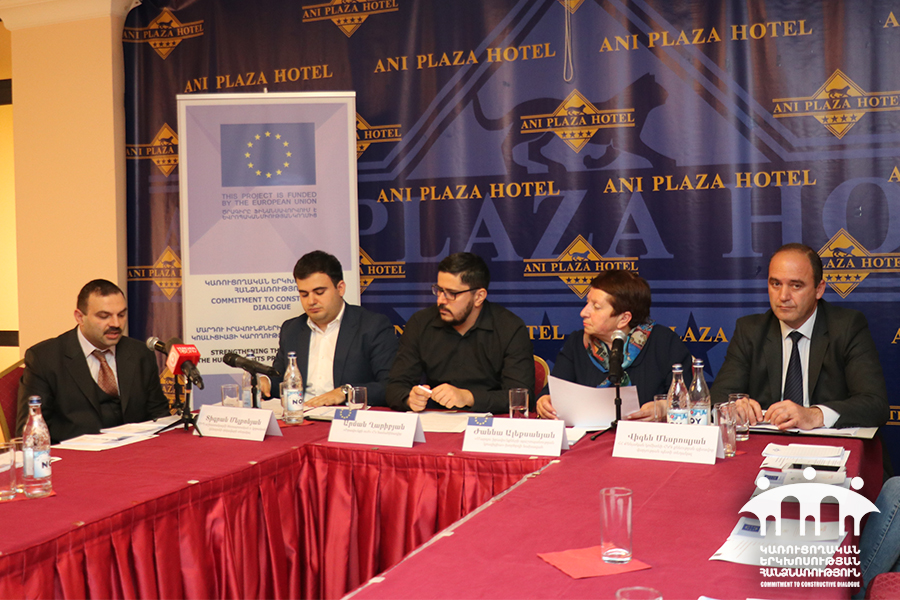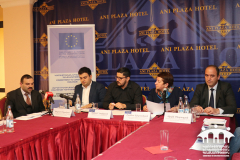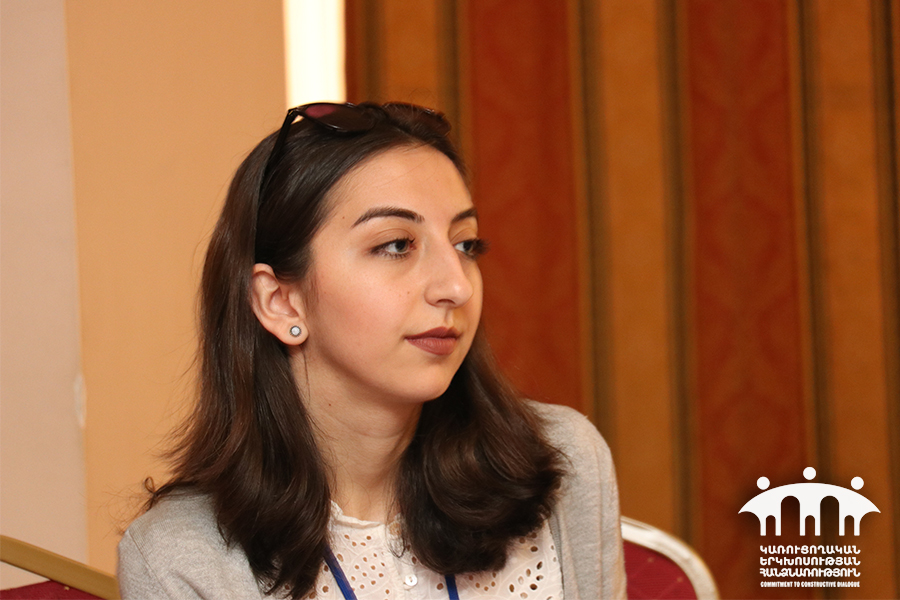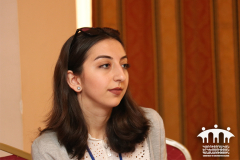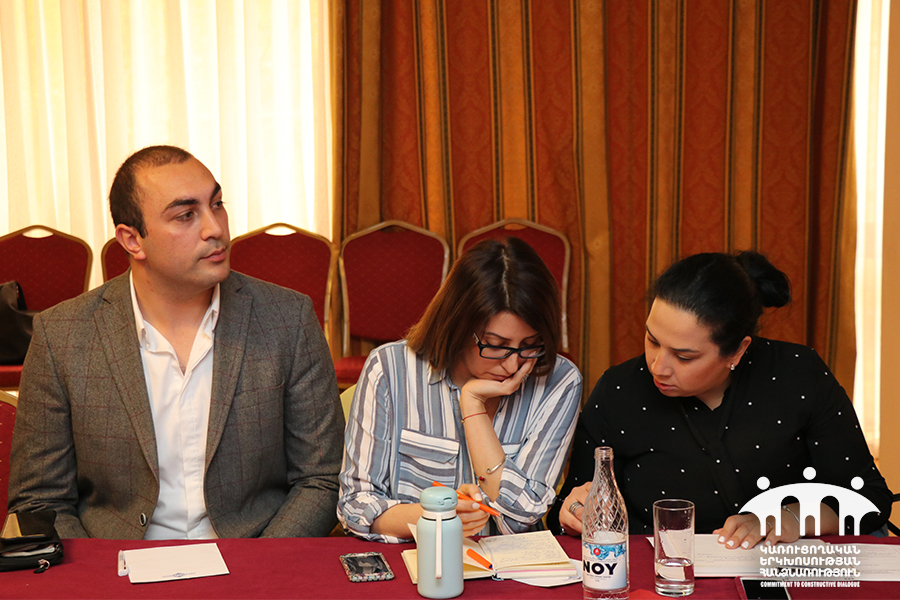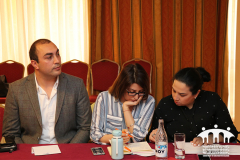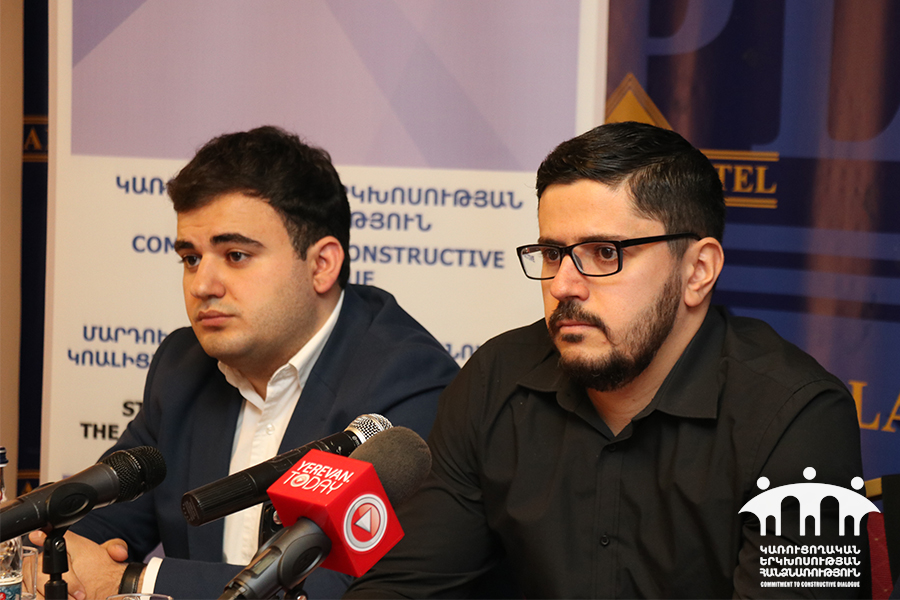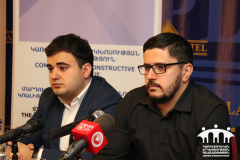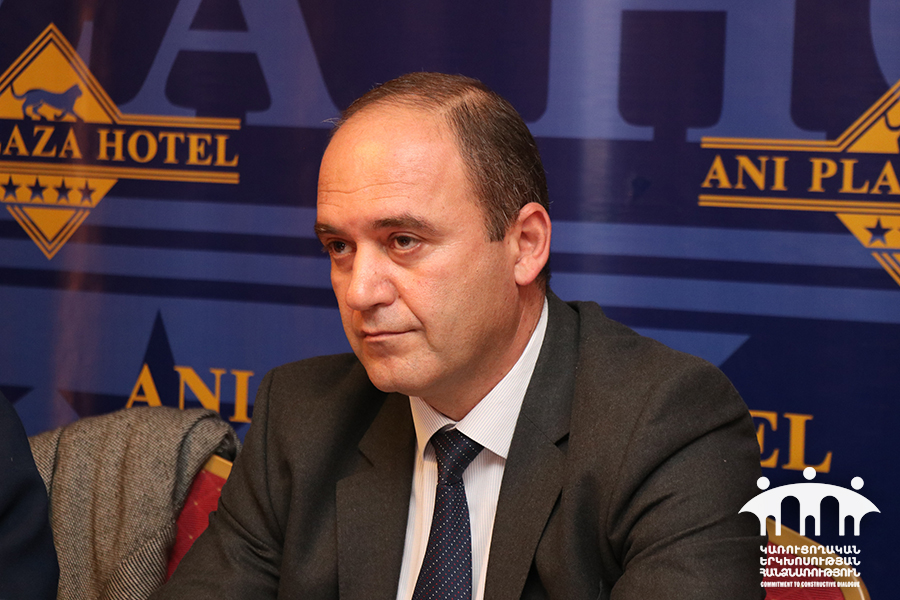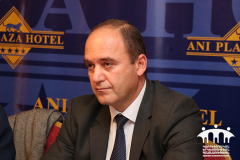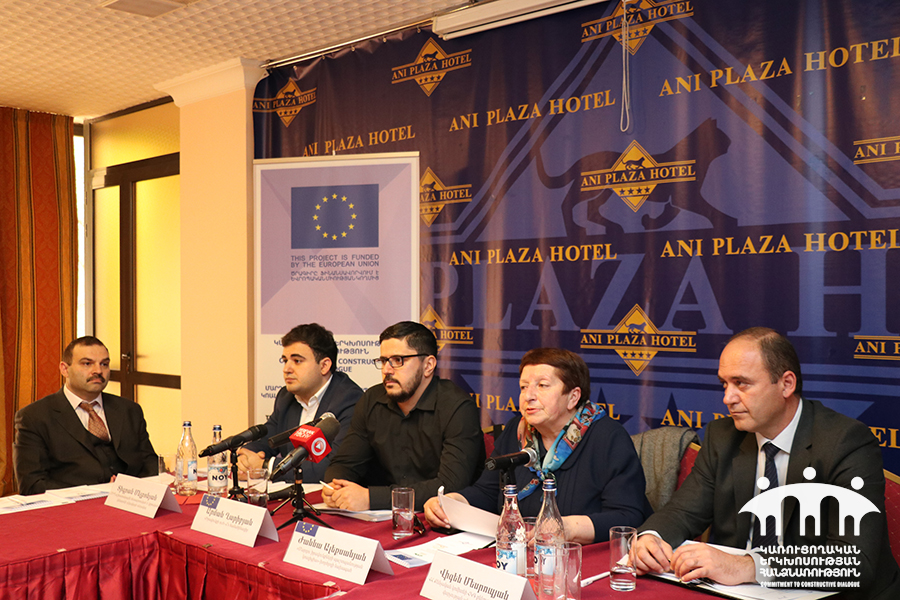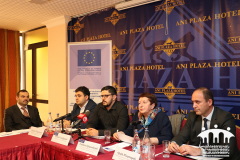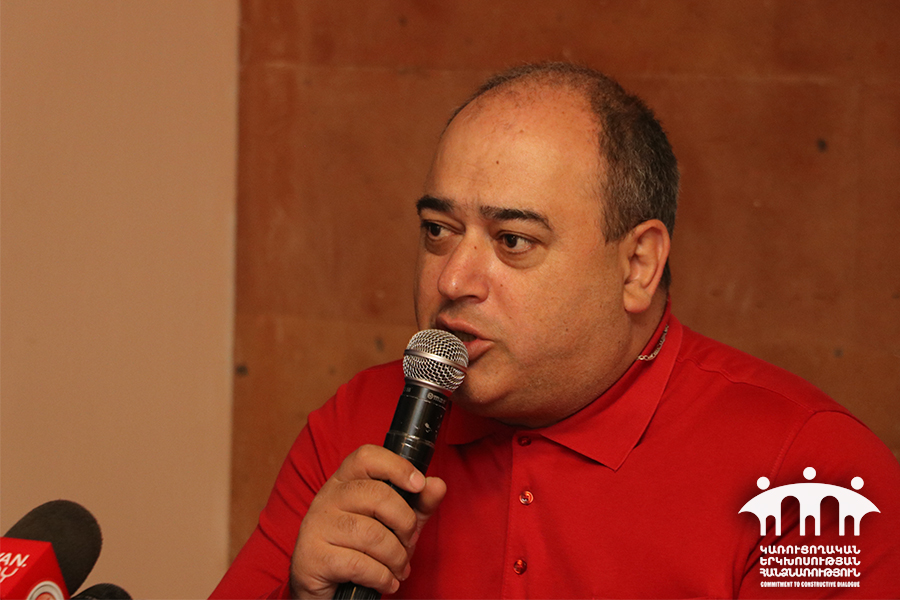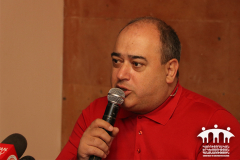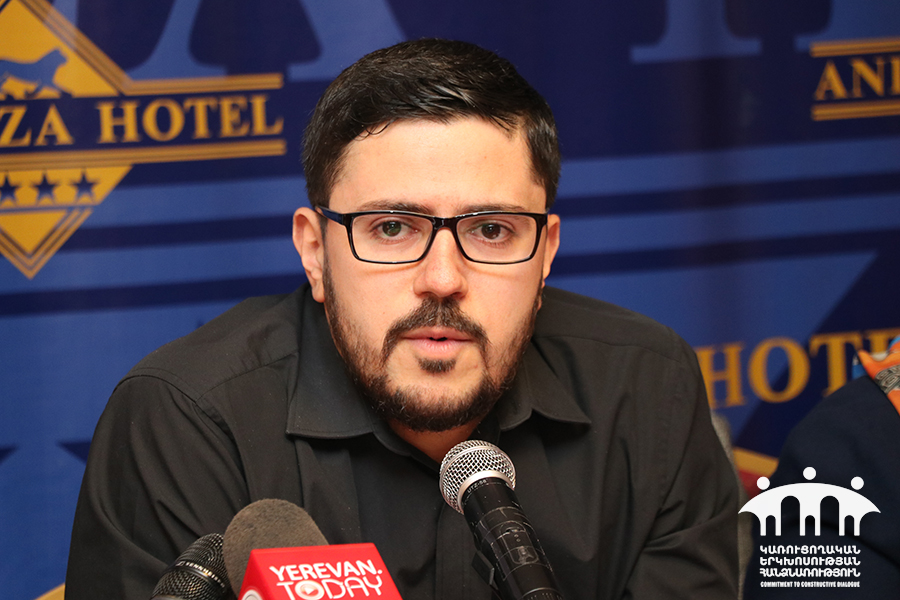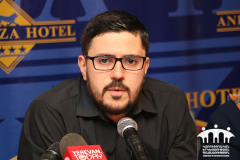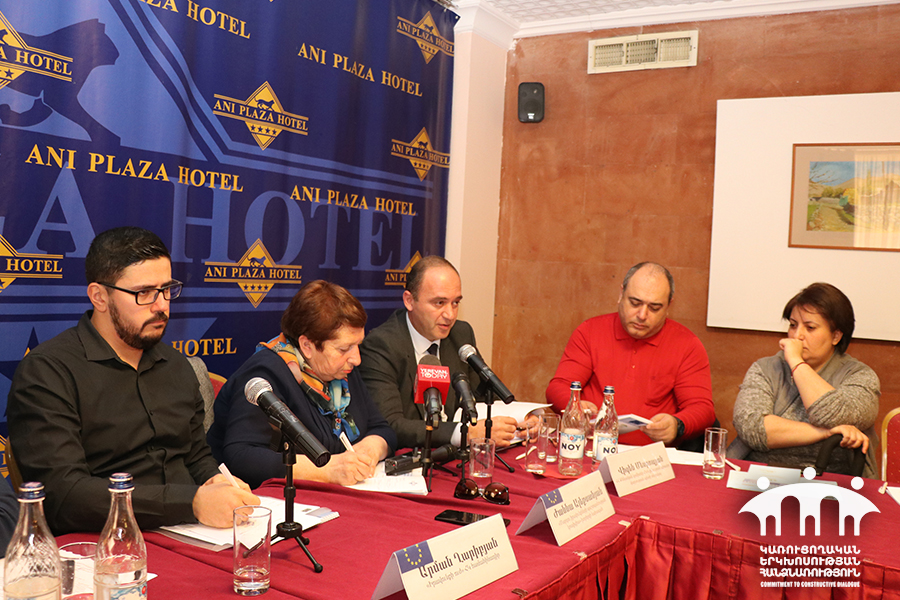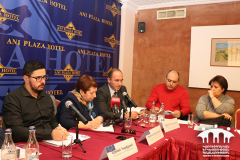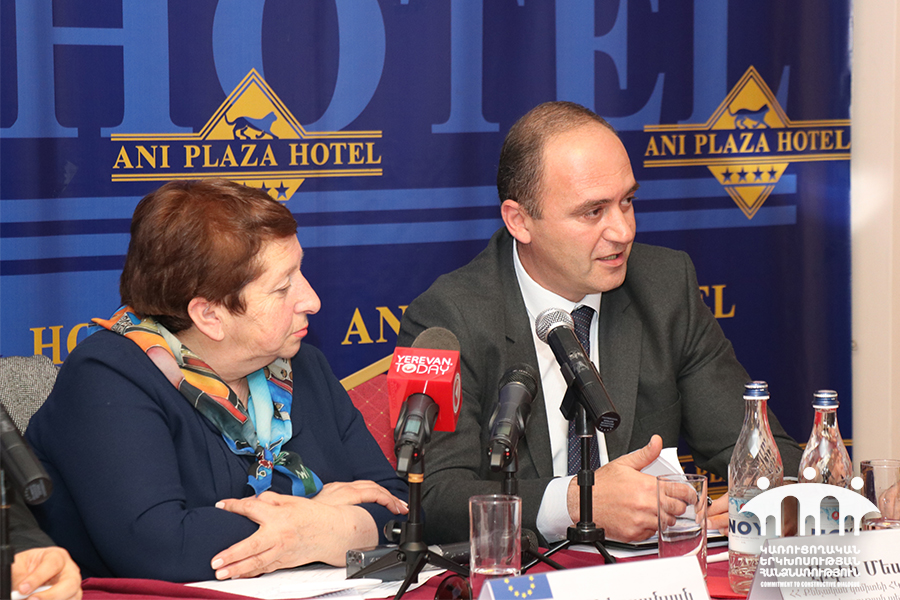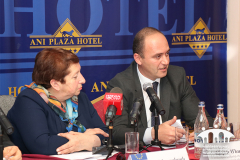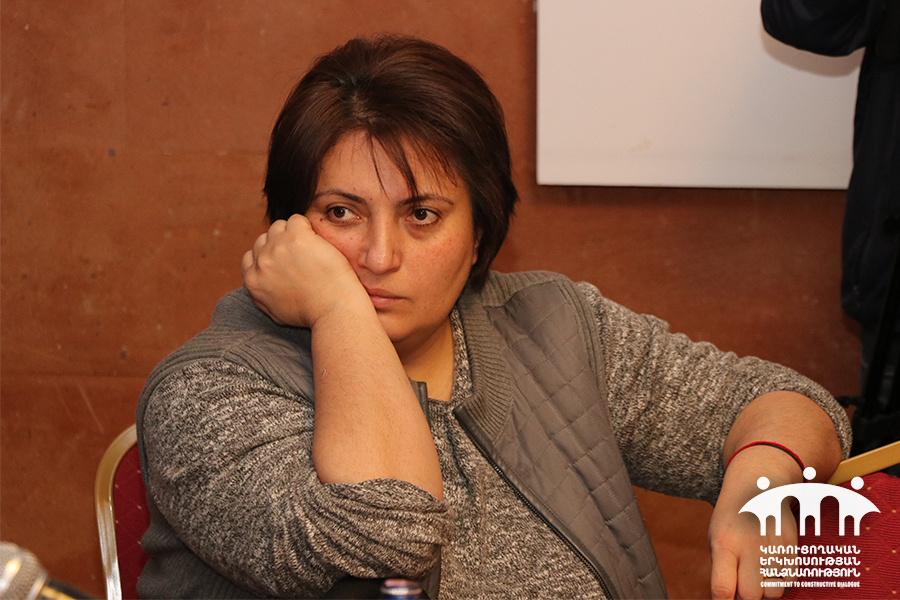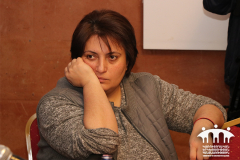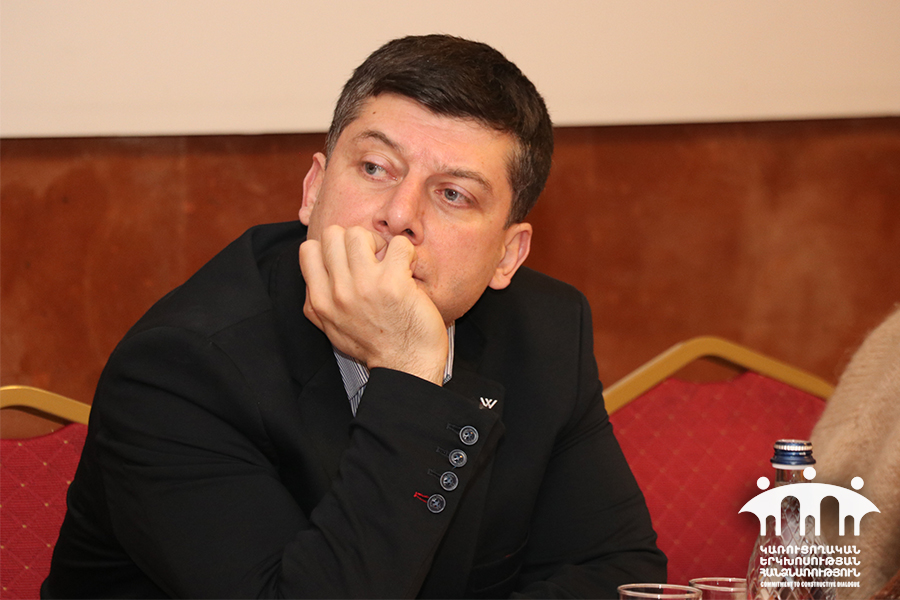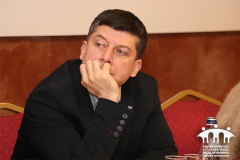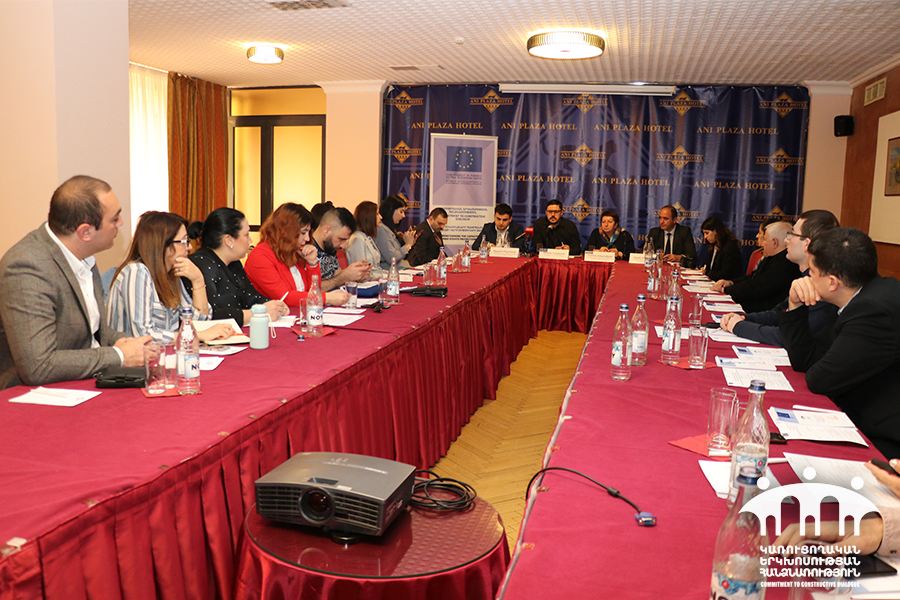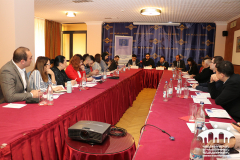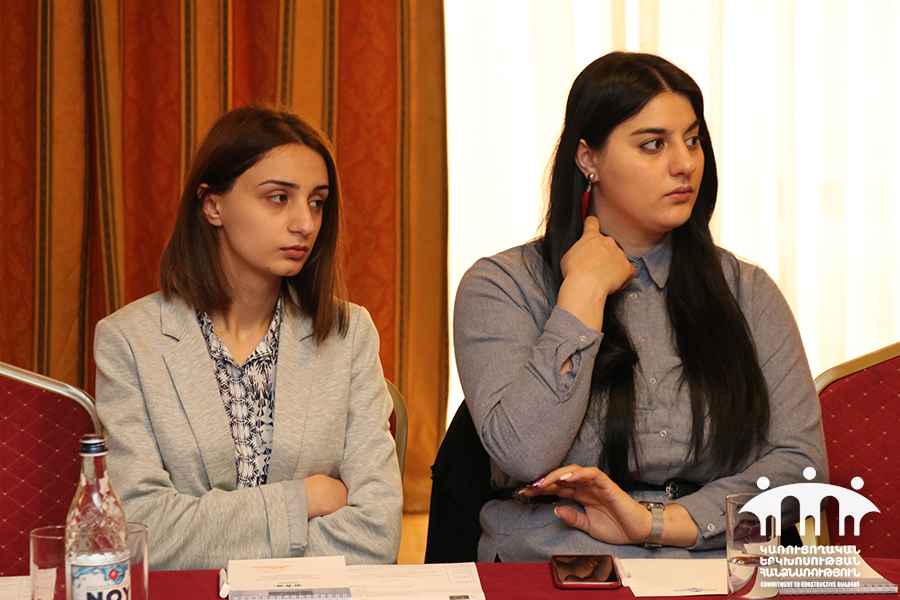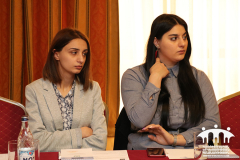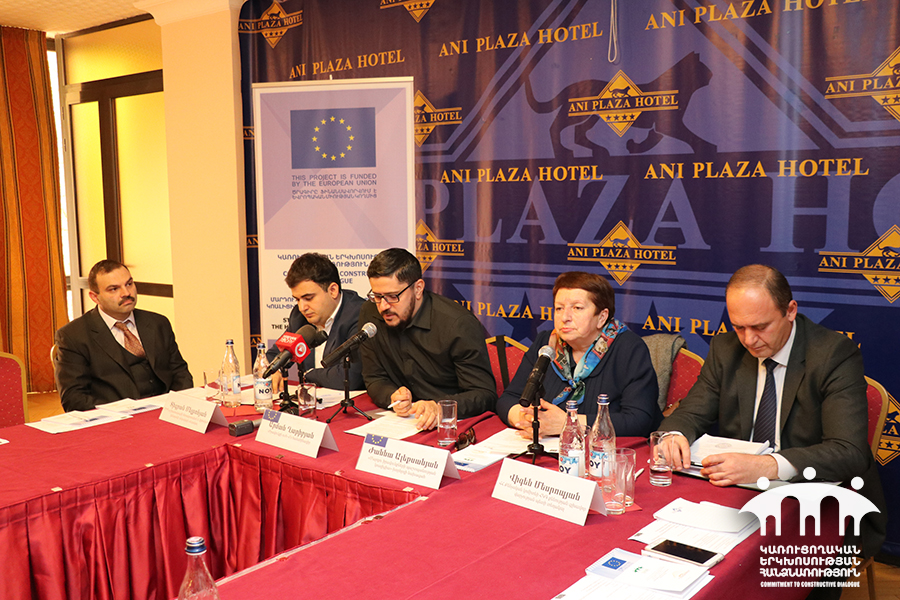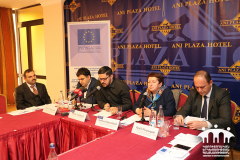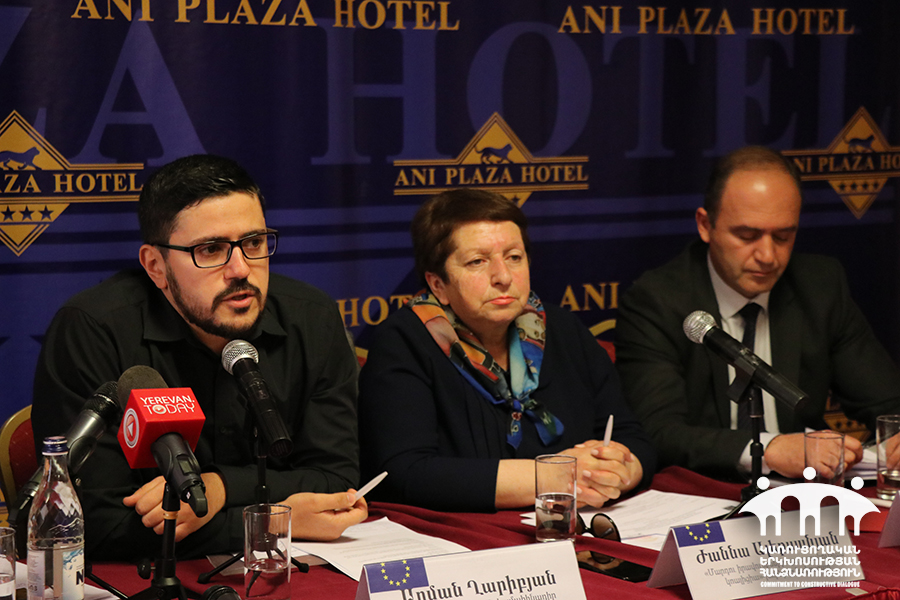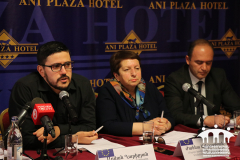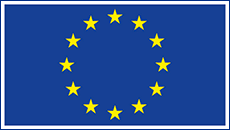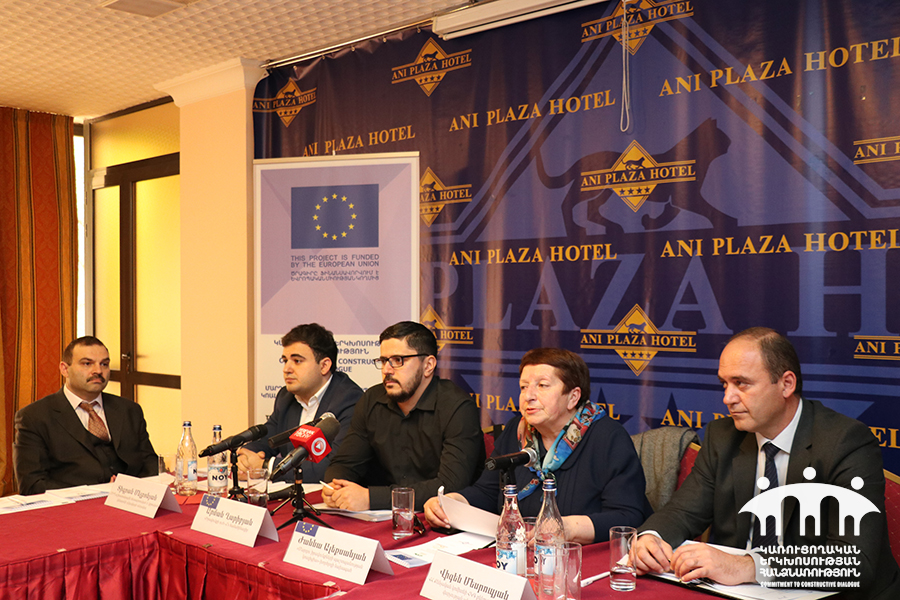
Today, on 19 April, the meeting discussion on “Threats to Human Rights Defenders, Hate Speech in the Internet” organised by the Human Rights Protection Coalition in the framework of “Human Rights: Monitoring and Publicity” project, funded in the scope of the EU funded “Commitment to Constructive Dialogue” project took place.
“Hate speech and threats on different topics, against the people working in different spheres, are constantly heard in the internet,” Ms Zhanna Alexanyan, President of the “Journalists for Human Rights” NGO, stated in her speech.
“We should make this a topic of our discussions more frequent and keep talking about it so that we can dispel those negative sentiments and hate speech. We need to involve a lot of people in these discussions. The press should also reflect this, as the press also has publications of hate speech,’ she said.
Mr. Marat Atovmyan, Mentors Group Coordinator of the “Commitment to Constructive Dialogue” Project, Mentor of Justice and Related Sectors, said that there is a need for constructive dialogue, and at the same time there is lack of respect and tolerance. “In fact, the mission of human rights activists is to protect human rights and to keep them free infringements and threats, but unfortunately in many cases human rights defenders are victims of hatred and threats themselves,” Marat Atovmyan said.
Mr. Arman Gharibyan, co-founder of the “Power of Law” NGO, presented the report on “Hate Speech: International and Armenian Legal Regulations “.
“I want to clarify that the fight against hate speech should in no way be confused and treated as an unnecessary restriction or prohibition of freedom of speech. Hate speech is qualified as either verbal or written, any expressive means by which a person or a group is severely treated or attributed according to their ethnic, racial, sexual belonging or sexual orientation, faith, disability and other social characteristics,” Arman Gharibyan said.
Mr. Vigen Mesropyan, Deputy Chief of the Investigative Committee’s General Department for the Examination of the PIC, presented the report on “Criminal Cases Initiated in 2017-2018 on the Facts of violations of the rights of Human Rights Defenders, Advocates, Journalists and Activists.”
“According to statistical data of 2018, 23 criminal cases against violations of the civilian activists’ were investigated in the proceedings of the different subdivisions of the Investigative Committee, 6 of which were sent to the court with indictment against 9 persons, the preliminary investigation body had chosen signature not to leave as a measure of restraint against 9 Persons,” Vigen Mesropyan informed.
He provided details on the statistics of the criminal cases filed against the mentioned person.
Mr. Tigran Melkonyan, Deputy Head of the Human Rights Defender’s Research and Training Center said that the cases of violence and threats to human rights activists had been included in the annual report of the Human Rights Defender. He mentioned that any word of hatred and call for violence are unacceptable regardless of the context in which they were made and against whom it was directed. “The presence of social platforms in our lives allow us to present our position to the public, to present various articles, to present comments on them, or to think about this or that issue. It seems like it’s a positive trend, but however, some people use the Internet to spread violence and hate speech,” Tigran Melkonyan added.
Advocate, Mr. Arsen Mkrtchyan mentioned in his speech that the problem is deeper than it seems. If it is said that there is no need to identify the advocate with his client and voice the words of hate, and threats in his address, does it mean that the advocate should not be threatened, and hate speech can be directed to the client?
“We should remember that when we defend the interests of the advocate, we should not forget the supreme value – the interests of the RA citizen. If the advocate has serious protection by law and by its Advocates’ Community, then the citizen uses the defense of that advocate. And it shouldn’t be said that it is not allowed to direct hate speech to the advocate, but it is allowed to do this against the client in the internet and during the assemblies,” detailed the advocate.
Alisa Chilingaryan


